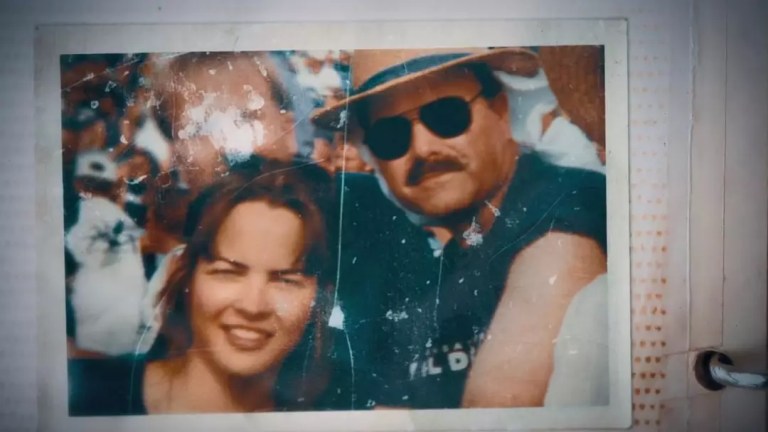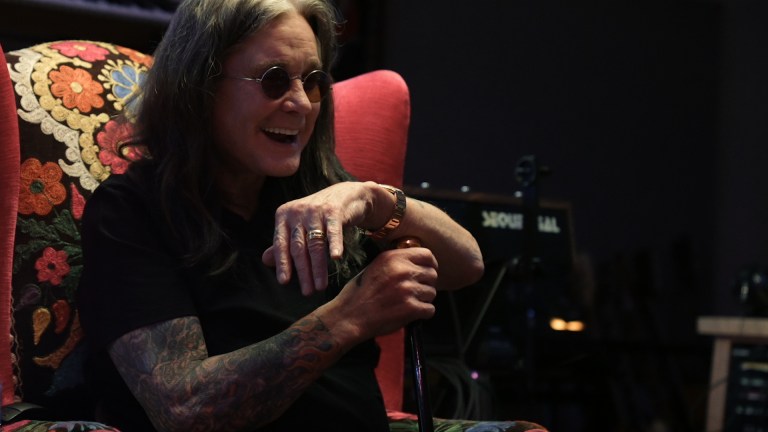
23 Bizarre Suicides From Around The World
A collection of men and women, famous and not, who have taken their own lives because of life.
By ![]() Brian Gates
Brian Gates
1. Ruslana Korshunova
On 28 June 2008 at around 2:30 p.m., Korshunova died after falling from the ninth-floor balcony of her apartment at 130 Water Street in the Financial District of Manhattan, USA. Police stated there were no signs of a struggle in her apartment and concluded that Korshunova’s death was an apparent suicide, although no suicide note was found. Speculations exist that her death was murder, and committed by individuals operating a ring where models are coerced into prostitution for wealthy individuals. One of Korshunova’s friends stated that she had just returned from a modeling job in Paris, noting that she seemed to be “on top of the world” with no apparent reason why she would commit suicide.[9] Korshunova planned to celebrate her 21st birthday on Wednesday in Pennsylvania. Korshunova’s former boyfriend, Artem Perchenok, stated that he dropped Korshunova off at her apartment several hours before her death after they watched the Patrick Swayze and Demi Moore film Ghost together. “I feel that she came to say goodbye”, said Perchenok. “She was a good person”, he added to The New York Post. However, Korshunova appeared brokenhearted and angry in some of her postings on a social networking site. Korshunova’s most telling message came in March 2008: “I’m so lost. Will I ever find myself?”.
2. Brynn Hartman
On the evening of May 27, 1998, Brynn Hartman visited the Italian restaurant Buca di Beppo in Encino, California, with producer and writer Christine Zander, who said she was “in a good frame of mind”. After returning to the couple’s nearby home, Brynn started a “heated” argument with her husband, who threatened to leave her if she started using drugs again, after which he then went to bed. While Hartman slept, Brynn entered his bedroom shortly before 3 a.m. with a .38 caliber handgun and fatally shot him twice in the head and once in his side. She was intoxicated and had recently taken cocaine.
Brynn drove to the home of her friend Ron Douglas and confessed to the killing, but he did not initially believe her. The pair drove back to the house in separate cars, after which Brynn called another friend and confessed a second time. Upon seeing Hartman’s body, Douglas called 911 at 6:20 a.m. Police subsequently arrived and escorted Douglas and the Hartmans’ two children from the premises, by which time Brynn had locked herself in the bedroom and committed suicide, shooting herself once in the head.
3. Jonathan Campos
Petty Officer Jonathan Campos was found unresponsive in his cell about 12:20 p.m. Friday, said Navy spokesman Doug Sayers. He was rushed to the base hospital where he was pronounced dead about an hour later.
“He was intent on committing suicide and stuffed toilet paper into his mouth until he asphyxiated,” Sayers said.
4. Angela Scoular
Scoular suffered from depression and anorexia nervosa. She attempted suicide in 1992 by slashing her wrists with a knife. It was revealed in March 2009 that she was suffering from colorectal cancer; she was eventually declared cancer-free, but in the months preceding her death she had feared its return. Weeks before her death, she was arrested for drink-driving. She died on 11 April 2011 after ingesting acid drain cleaner and pouring it on her body, causing lethal burns to her digestive tract and skin. She was survived by Phillips and her son Daniel. An inquest at Westminster Coroner’s Court on 20 July 2011 established that Scoular had been an alcoholic and suffered from depression and anxiety about debts; she was on medication for bipolar disorder at the time of her death. The coroner recorded that Scoular had “killed herself while the balance of her mind was disturbed”, and stated that her death was not suicide.
5. David Baker
He had taken life by a double process. When found he was suspended by the neck with two strands of a rope from the limb of a tree. A few steps from him lay his budget; upon it lay his knife and razor, the latter quite bloody. His throat was cut in two place, but both too high, or near the chin to effect a speedy death.
6. John H. Smith
John H. Smith, a giant oil well driller, of Pittsburg, [sic] committed suicide by tying a fire escape rope around his neck and swinging himself out of the third story window of Boley’s hotel, on Diamond street. The noise of his dead body swinging against one of the windows led to the discovery of the act.
7. Jan Potocki
Potocki committed suicide in December 1815 at the age of 54, though the exact date is uncertain — possibly November 20, December 2 or December 11. There are also several versions of the circumstances of his death; the best-known story is that he shot himself in the head with a silver bullet — fashioned from the strawberry-shaped knob of a sugar bowl given to him by his mother — which he first had blessed by his castle priest. One version of Potocki’s suicide suggests that he gradually filed the knob off the lid, a little every morning.
8. Richard Sumner
The handcuffs attached to one arm indicated that Mr Sumner had attached himself to the tree and thrown the key to a point where he could not retrieve it, north east Wales coroner John Hughes was told.
9. Syd King
Although comparatively rich for an ex-player working in football, King’s reputation as well as his career were in tatters. Within a month of the sacking he committed suicide by drinking alcohol mixed with a corrosive liquid.
The inquest into his death declared that he had taken his life ‘while of unsound mind’, and had been suffering from persecution delusions. According to his son at the inquest, his depression had begun when the team were relegated in the summer of 1932, and that his paranoia had followed on from that.
10. Ulrike Meinhof
After two years of preliminary hearings, Meinhof was sentenced to 8 years’ imprisonment on 29 November 1974. Eventually Meinhof, Baader, Ensslin, and Raspe were jointly charged on 19 August 1975, with four counts of murder, fifty-four of attempted murder, and a single count of forming a criminal association. However before the trial was concluded, Meinhof was found hanged by a rope, fashioned from a towel, in her cell in the Stammheim Prison on 9 May 1976. It is highly probable that, if not for her death, she would have been sentenced to ‘life imprisonment plus 15 years’. (The remaining three defendants received such a sentence, designed to minimize the possibility of early parole.)
11. Yukio Mishima
On November 25, 1970, Mishima and four members of the Tatenokai, under pretext, visited the commandant of the Ichigaya Camp, the Tokyo headquarters of the Eastern Command of Japan’s Self-Defense Forces. Inside, they barricaded the office and tied the commandant to his chair. With a prepared manifesto and a banner listing their demands, Mishima stepped onto the balcony to address the soldiers gathered below. His speech was intended to inspire a coup d’état to restore the power of the emperor. He succeeded only in irritating the soldiers, and was mocked and jeered. He finished his planned speech after a few minutes, returned to the commandant’s office and committed seppuku. The assisting kaishakunin duty at the end of this ritual (to decapitate Mishima) had been assigned to Tatenokai member Masakatsu Morita, who was unable to properly perform the task. After several failed attempts at severing Mishima’s head, he allowed another Tatenokai member, Hiroyasu Koga, to behead Mishima. Morita then knelt and stabbed himself in the abdomen and Koga again performed the kaishakunin duty.
12. Haoui Montaug
Suffering from AIDS, in June 1991 Montaug invited 20 guests to celebrate his suicide at his loft apartment in the Bowery neighbourhood in Manhattan. His apartment was located at the corner of the Bowery and East 2nd Street. In addition to the guests present, Madonna was at the party via telephone from Los Angeles. Montaug had previously introduced Madonna at the performance for her music video for “Everybody” in the early 1980s. At the gathering Montaug swallowed five Seconal barbiturate pills, and went into a deep laboured sleep, but kept breathing, to the dismay of the guests. His guests remained the next morning when he awoke in a fury. Montaug finally swallowed 20 more pills and died within half an hour. He was survived by his mother and sister.
13. Scott Nearing
Scott Nearing died on August 24, 1983, just eighteen days after his 100th birthday. His death was a conscious leaving of life brought about by fasting.
14. Sylvia Plath
The nurse was due to arrive at nine o’clock the morning of 11 February 1963 to help Plath with the care of her children. Upon arrival, she could not get into the flat, but eventually gained access with the help of a workman, Charles Langridge. They found Plath dead of carbon monoxide poisoning in the kitchen, with her head in the oven, having sealed the rooms between herself and her sleeping children with wet towels and cloths. At approximately 4:30 am, Plath had placed her head in the oven, with the gas turned on.[30] She was 30.
15. David Reimer
On May 2, 2004, his wife Jane told him she wanted to separate. On the morning of May 5, 2004, Reimer drove to a grocery store’s parking lot, and committed suicide by shooting himself in the head with a sawed-off shotgun. He was 38 years old.
16. Mark Rothko
In the spring of 1968, Rothko was diagnosed with a mild aortic aneurysm. Ignoring doctor’s orders, Rothko continued to drink and smoke heavily, avoided exercise, and maintained an unhealthy diet. “Highly nervous, thin, restless” was his friend Dore Ashton’s description of him at this time. However, he did follow the medical advice given not to paint pictures larger than a yard in height and turned his attention to smaller, less physically strenuous formats, including acrylics on paper. Meanwhile, Rothko’s marriage had become increasingly troubled, and his poor health and impotence resulting from the aneurysm compounded his feeling of estrangement in the relationship. Rothko and his wife Mell separated on New Year’s Day 1969, and he moved into his studio.
On February 25, 1970, Oliver Steindecker, Rothko’s assistant, found the artist in his kitchen, lying dead on the floor in front of the sink, covered in blood. He had sliced his arms with a razor found lying at his side. The autopsy revealed that he had also overdosed on anti-depressants. He was sixty-six years old. The Seagram Murals arrived in London for display at the Tate Gallery on the very day of his suicide.[75]
17. George Sanders
On 23 April 1972, Sanders checked into a hotel in Castelldefels, a coastal town near Barcelona. He was found dead two days later, having gone into a cardiac arrest. He had taken five bottles of the barbiturate Nembutal.[9][10] Sanders was 65 years old. The death was officially a suicide since he left behind three gentlemanly suicide notes, which read:
Dear World, I am leaving because I am bored. I feel I have lived long enough. I am leaving you with your worries in this sweet cesspool. Good luck. (with his signature under the message)
18. Virginia Woolf
After completing the manuscript of her last (posthumously published) novel, Between the Acts, Woolf fell into a depression similar to that which she had earlier experienced. The onset of World War II, the destruction of her London home during the Blitz, and the cool reception given to her biography of her late friend Roger Fry all worsened her condition until she was unable to work. On 28 March 1941, Woolf put on her overcoat, filled its pockets with stones, and walked into the River Ouse near her home and drowned herself. Woolf’s body was not found until 18 April 1941. Her husband buried her cremated remains under an elm in the garden of Monk’s House, their home in Rodmell, Sussex.
19. Francesca Woodman
In late 1980 Woodman became depressed due to the failure of her work to attract attention and to a broken relationship. She survived a suicide attempt, after which she lived with her parents in Manhattan. On January 19, 1981, she committed suicide by jumping out a loft window in New York. An acquaintance wrote, “things had been bad, there had been therapy, things had gotten better, guard had been let down.” Her father has suggested that Woodman’s suicide was related to an unsuccessful application for funding from the National Endowment for the Arts.
20. Stefan Zweig
Feeling more and more depressed by the growth of intolerance, authoritarianism, and nazism, and feeling hopeless for the future for humanity, Zweig wrote a note about his feelings of desperation. Then, in February 23, 1942, the Zweigs were found dead of a barbiturate overdose in their house in the city of Petrópolis, holding hands.
21. Hunter S. Thompson
Thompson died at Owl Farm, his “fortified compound” in Woody Creek, Colorado, at 5:42 p.m. on February 20, 2005, from a self-inflicted gunshot wound to the head. His son Juan, daughter-in-law Jennifer, and grandson Will were visiting for the weekend. Will and Jennifer were in the next room when they heard the gunshot, but they mistook the sound for a book falling and didn’t check on him immediately.
22. Li Tobler
In 1971, Giger and Tobler visited director Fredi M. Murer in London. Murer filmed a TV documentary, entitled Passagen (1972), about Giger’s work. The documentary also featured interviews by both Giger and Tobler. In the 1972-1973 season, Tobler gained a part in the play My woman, my leader, and had to travel all around Switzerland. Physically and mentally exhausted after 130 performances of the play, weary after the hectic schedule that required extensive tour around the country and confused by her promiscuous erotic life, Tobler decided to take a leave of absence from the acting profession, as well as from her relationship with Giger. In 1974, she opted for leaving him and moving to San Francisco with her new American boyfriend. However, 30 days later, she returned to Zürich, claiming to be disappointed over the United States (as well as incapable of adapting to American lifestyle, according to Giger) and resuming her relationship with the painter.
Following this incident, Tobler started becoming heavily depressed. In sharp contrast to Giger, who was undergoing one of his most energetic artistic periods, Tobler was gradually dissolving in depression and apathy. Giger’s energy only seemed to depress her more. She started contemplating suicide. One of her friends, Jörg Stummer, advised her to open her own gallery, as a means of becoming active again. Her gallery presented several modern artists, including works by Manon, Walter Pfeiffer and Jürgen Klauke. At her last exhibition, entitled Schuhwerke (German for Shoe Works), the guests were invited to appear wearing bizarre shoe creations. Giger filmed the guests while wearing a pair of “shoes” hollowed out of fresh loaves of bread. Despite Tobler’s initial enthusiasm with her new project, after a short period of creative stir, she fell into a lethargic state and committed suicide at the age of 27, on Whit Monday 1975.
23. Mădălina Manole
Madalina was found dead by her husband at their house in the early morning of July 14, 2010, her 43rd birthday, after an apparent suicide. Investigations are currently under way. She allegedly caused her own death by drinking nearly half a litre of Carbofuran.











